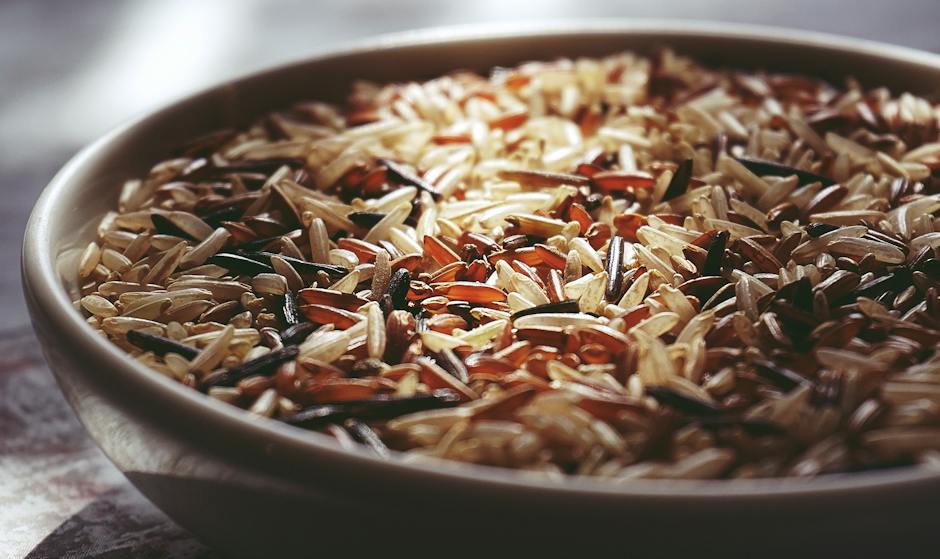The Surprising Side Effects of Rice Water on Hair: What You Need to Know
Rice water has been hailed as a miraculous elixir for hair growth and shine, but what about its potential side effects? In this comprehensive guide, we delve into the less-discussed aspects of using rice water on your locks. From protein overload to unexpected reactions, we uncover the truths behind this traditional beauty remedy. Whether you’re a long-time advocate or a curious newcomer, understanding the full spectrum of rice water’s impact on hair is crucial for maintaining healthy, vibrant tresses.
What is Rice Water and How is it Used for Hair Care?
Rice water, the starchy liquid left behind after soaking or boiling rice, is rich in vitamins and minerals that are believed to benefit hair health. It’s a traditional hair care treatment that has been used for centuries in various cultures, particularly in Asia. But as with any natural remedy, it’s important to be aware of potential side effects.
Potential Benefits of Rice Water for Hair
- Strengthens Hair: Rice water is believed to contain inositol, a carbohydrate that can help strengthen elasticity and reduce surface friction.
- Promotes Shine: The amino acids present in rice water may help in enhancing the hair’s natural shine.
- Aids in Detangling: Due to its smoothing properties, rice water can make hair easier to detangle.
How to Prepare Rice Water
- Soaking Method: Soak half a cup of uncooked rice in two to three cups of water for 30 minutes to an hour.
- Boiling Method: Boil rice and strain the water into a separate container for use.
Are There Any Side Effects of Using Rice Water on Hair?
While rice water can be beneficial, it’s not without its drawbacks. Let’s explore some of the side effects that some individuals may experience.
Protein Overload
What is Protein Overload?
Protein overload occurs when there is too much protein and not enough moisture, leading to brittle and stiff hair. Rice water is high in protein, which can contribute to this imbalance.
Signs of Protein Overload
- Brittle Hair: Hair may become more prone to breakage.
- Lack of Elasticity: Strands may lose their natural stretch and bounce.
Allergic Reactions
Identifying an Allergic Reaction
Some individuals may be allergic to the proteins found in rice water, leading to scalp irritation or allergic contact dermatitis.
Symptoms of an Allergic Reaction
- Itchiness: An itchy scalp after application.
- Redness: Visible irritation or red patches on the scalp.
How Often Should You Use Rice Water on Your Hair?
The frequency of rice water use should be tailored to your hair’s specific needs and tolerance. Overuse can lead to the aforementioned side effects.
Recommended Usage
- Start Slowly: Begin with once a week and observe how your hair responds.
- Adjust Accordingly: If you notice any adverse effects, reduce the frequency or discontinue use.
Can Rice Water Cause Hair Loss?
There is no direct evidence that rice water causes hair loss. However, if used improperly or excessively, it could potentially lead to hair damage and increased breakage.
Understanding the Link Between Rice Water and Hair Loss
- Imbalance: Overuse can disrupt the protein-moisture balance.
- Brittleness: Excessive protein may make hair brittle and more susceptible to falling out.
Best Practices for Using Rice Water on Hair
To minimize the risk of side effects, follow these best practices when incorporating rice water into your hair care routine.
Tips for Safe Use
- Dilute the Rice Water: If you’re experiencing stiffness or dryness, try diluting the rice water with more water.
- Use a Moisturizing Conditioner: Balance the protein with hydrating hair products.
- Patch Test: Apply a small amount to your wrist before using it on your scalp to check for allergic reactions.
Conclusion: Balancing the Benefits and Side Effects of Rice Water
Rice water can be a valuable addition to your hair care regimen, but it’s essential to use it mindfully. By understanding and recognizing the potential side effects, you can enjoy the benefits of rice water while keeping your hair healthy and resilient. Remember to listen to your hair’s needs and adjust your usage accordingly to maintain the perfect protein-moisture balance.


